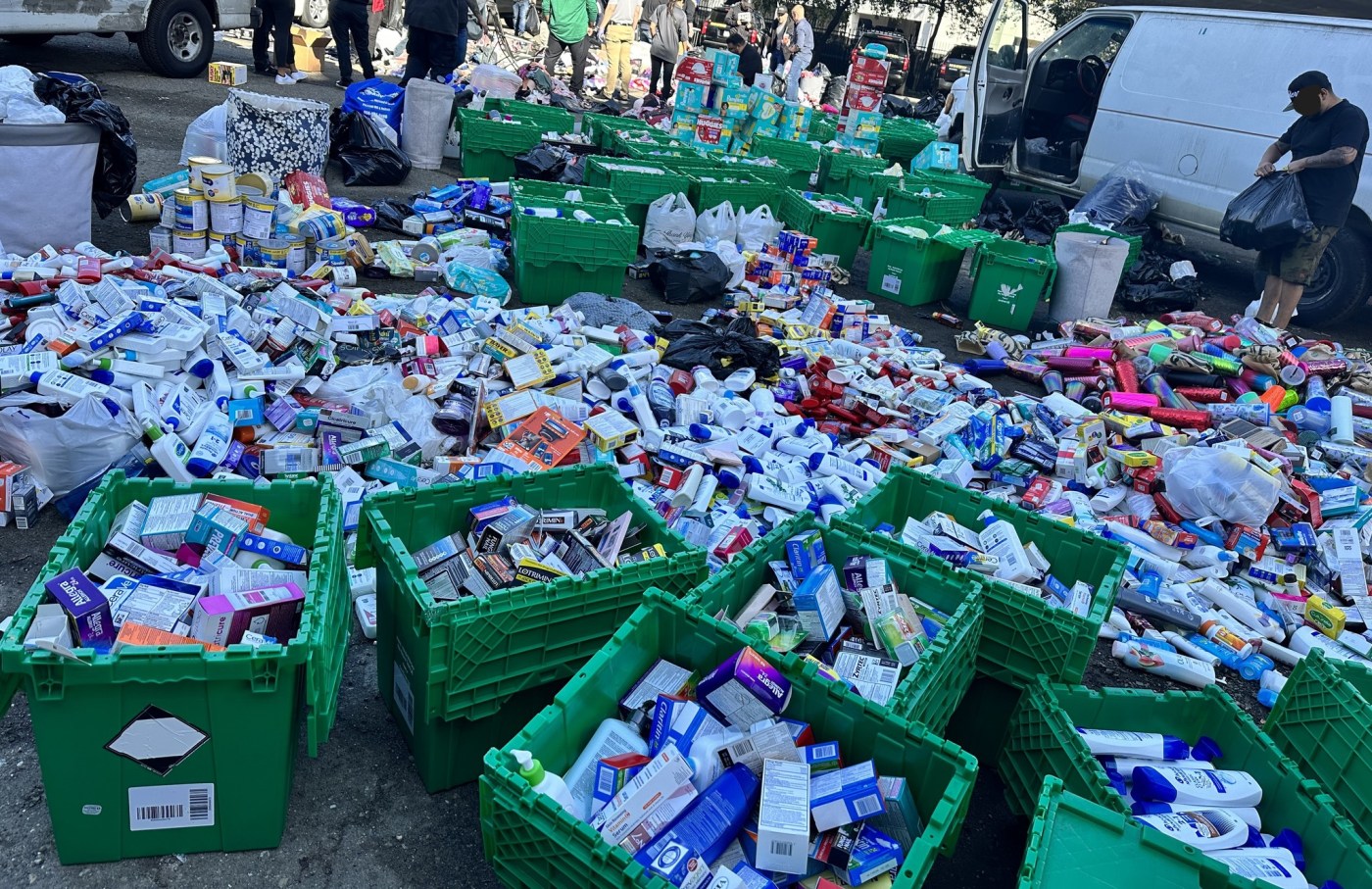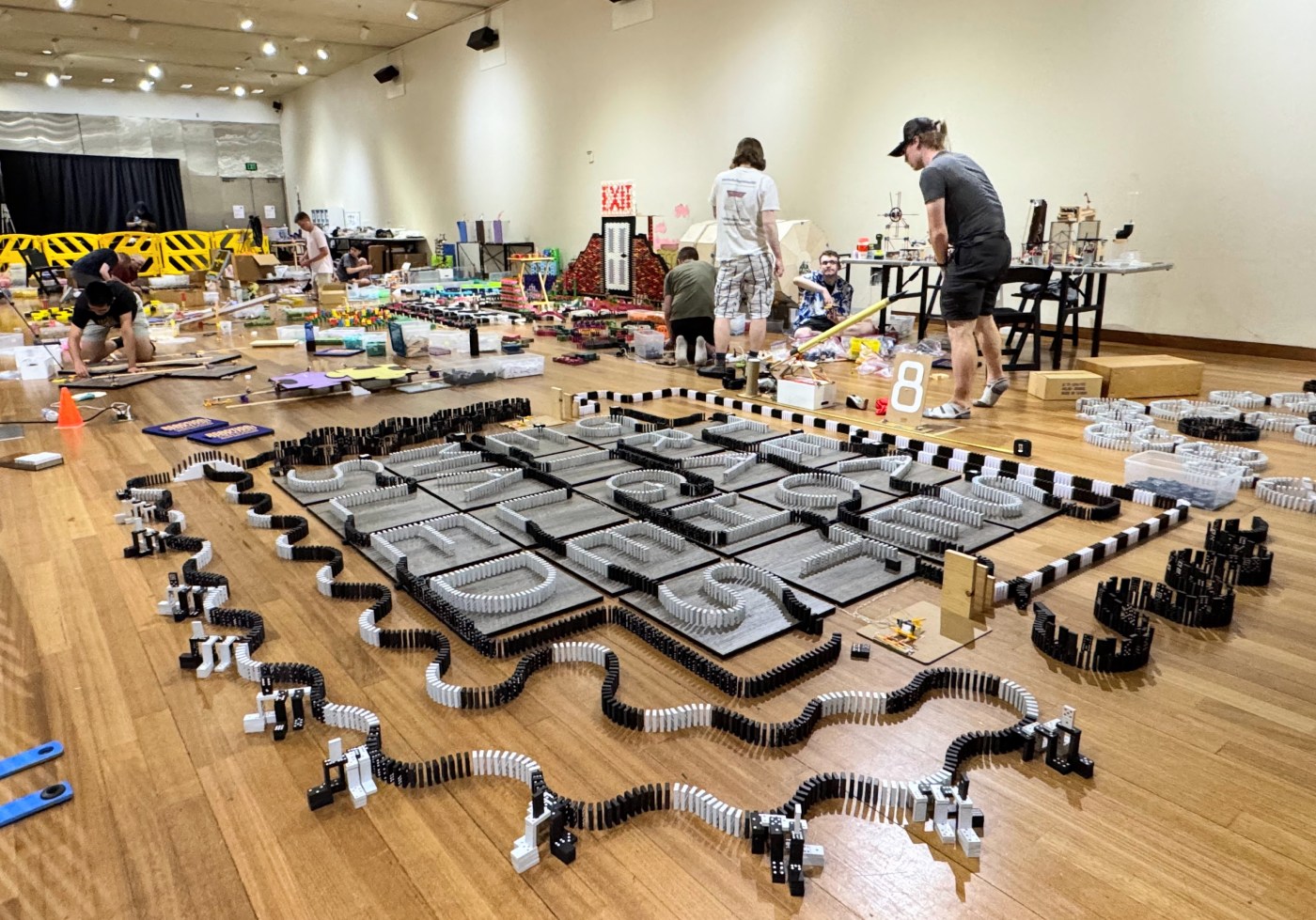OAKLAND — For two days, investigators parked their unmarked car outside a nondescript parking lot behind an Oakland liquor store, across the street from a church and watched.
They saw the same thing over and over: A car would pull up, and someone inside would exit with a jumbo-sized garbage bag that appeared full and heavy. A hand-to-hand transaction would occur and the vehicle would pull off, soon to be replaced by another, authorities said.
By the end, two people were charged: 22-year-old Jose Cruz-Barragan and 35-year-old Irene Cruz. In a police interview, Cruz-Barragan allegedly claimed to be a flea market salesman who made a paltry $120 per workday. But the duo face charges of receiving $541,790 in stolen property for re-sale and are set to appear in court for a disposition hearing in two weeks, records show.
The secret surveillance operation was the culmination of three public and private investigations seeking to put a dent in one of California’s most brazen and controversial crimes. The probes slowly melded into one and took detectives from suburban retail outlets, to dusty flea markets in the Central Valley, to this empty car lot in East Oakland that police now allege was serving as a major hub for the trafficking of stolen goods.
Videos of thieves brazenly filling bags or leaving with armfuls of merchandise are constantly broadcast online and on TV. The images have become a symbol of lawlessness across California. But what happens after the thefts have largely stayed in the dark.
Over the past two years, authorities in the Bay Area say they’ve uncovered evidence of hidden underground networks of stolen good buyers, colloquially referred to as fencers. Known only to the thieves themselves, these groups are what largely fuel the multi-million dollar shoplifting industry.
In one case, a massive fencing operation based out of an Oakland clothing store was allegedly supplying stolen baby formula and allergy medicine to retailers in New York, using a Texas-based trucking company owned by the clothing store’s owner, according to court records. In another case, a Pacifica woman named Elvia Esquide-Perez was allegedly acquiring hundreds of thousands of dollars worth of high-end stolen purses from an East Bay gang called “F— Everyone.”
“I have teams that have been working with me for four years,” Esquide-Perez allegedly told a suspected gang member in a text message contained in a court file. “We are all eating.”
In the Cruz investigation, it all started with a common act of theft in September 2023. Two women walked into a Sephora store in a San Ramon shopping center, and left with $2,300 in makeup and skincare products. A detective got their description and jotted down their license plate number. The Dodge Charger, it turned out, was registered to another suspected shoplifter, court records show.
Less than a month later, the Dodge Charger’s owner was arrested in Dublin for allegedly stealing from a Target. She was eliminated as a suspect in the Sephora theft, but provided police the nickname of a possible suspect: Sinny. On the woman’s phone, police say they uncovered messages between them where they discuss wish lists from a local fencer and use the slang term “hit” to refer to stealing.
“Send me the stuff he want from Walgreens,” the Charger’s owner allegedly texted Sinny.
“K b—- wya (where you at), I wanna go hit,” Sinny allegedly responded.
There was another contact on the woman’s phone, labeled “Plug,” where conversations took a different tone.
“I’m outside in a black Dodge,” the woman allegedly texted Plug. “I came yesterday. I have lipsticks & serum for you.”
While San Ramon police were working to arrest their shoplifters, private investigators hired by retailers like Walgreens, Safeway and Rite Aid were scouring flea markets in Galt and Modesto for stolen merchandise. They reportedly found plenty of it, some with the anti-theft devices still attached.
One day, police tailed one of the vans associated with a stolen merchandise booth, authorities said. It led them to the 9700 block of E Street in East Oakland, to the parking lot where police later conducted surveillance. The owner of the lot was Cruz-Barragan, who allegedly handed over his phone after a June 28, 2024 raid of the lot, which reportedly uncovered more than $300,000 in suspected stolen merchandise.
Cruz-Barragan’s phone number, according to police, was the same as the “Plug” contact in the suspected shoplifter’s phone.
Other fencers have been tied to the flea market in Galt, a town on Highway 99 between Sacramento and Stockton. Sacramento police say several shoplifting suspects told them of an El Sobrante resident who was buying stolen merchandise there for re-sale, resulting in a series of 2023 raids targeting the suspect’s Parkside Drive home and several vehicles. No criminal charges were ever filed against the suspected fencer, court records show.
In another East Bay theft ring, police investigated suspected members of Oakland’s F— Everyone gang who allegedly committed 34 burglaries across California in two months, resulting in an estimated loss of $970,000 to stores. One of the men, 23-year-old Oakland resident Alejandro McDonald, was allegedly communicating with Esquide-Perez about the price for new and damaged handbags.
“For brand new bags the total is $119,775. For damaged bags the total is $68,000,” McDonald allegedly texted her, before explaining his math, according to court records.
“We agree on everything,” Esquide-Perez allegedly texted back before arranging to meet at a Burger King. “We ask not bring several cars. We will do the same. Tell your people to be at a distance just to not cause extra attention.”
Now, Esquide-Perez is charged with conspiracy and receiving stolen property, and is next due in court on July 30. McDonald, charged with the burglaries in a separate case, allegedly jumped bail and has a warrant out for his arrest.
But perhaps the most sprawling investigation in recent memory led federal and state investigators to the 1900 block of Fruitvale Avenue, to an Oakland business known to some seedy locals as the “h– store,” because it sells lingeries and skimpy clothing typically worn by sex workers. A surveillance operation in 2021-2022 — during the coronavirus pandemic — captured people showing up with bags of suspected stolen baby formula and allergy pills, which were transferred by hand truck into vans and trucks.
One transaction in particular caught detectives’ eyes, and perhaps demonstrates how carefree suspects never expecting to be caught had acted. On the morning Oct. 26, 2021, a woman in a red sweatshirt exited her Porsche Cayenne with two tan handbags. She proceeded to load them with baby formula in full view of a nearby surveillance van, authorities said.
She walked into the store, and emerged with the empty handbags moments later. Then, she fanned out a large wad of U.S. currency, held it into the air and began to dance, a few feet from a row of scantily clad mannequins.





